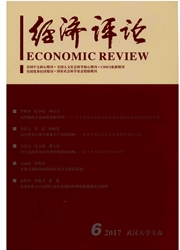

 中文摘要:
中文摘要:
本文运用中国健康与养老追踪调查(CHARLS)项目2008年先导调查数据,研究发现中国家庭代际转移呈现向上转移和隔代向下转移的特征:即经济状况较差的老年人获得子女不菲的经济帮助,老年人对孙辈提供经济帮助也是非常普遍的现象。同时,基于Heckman两步估计法的研究结果表明,成年子女家庭对父母提供经济帮助的规模与父母收入水平呈显著的正相关关系,即拒绝了无私动机假说,而支持了交换动机假说。本文的研究表明政府养老保障不会对家庭代际转移产生“挤出”效应,未来加大政府养老保障的范围和力度,同时创造条件促进子女对老年父母提供经济帮助,可以共同有效改善老年人的福利水平。
 英文摘要:
英文摘要:
By utilizing 2008 CHARLS data, this paper found that the elderly parents with bad economic condition obtained lots of transfers from their adult children, at the same time, the elderly gave lots of transfers to their grandchildren. By using Heckman two - step estimation, we found that the amount of transfers of adult children family giving to the elderly parents had a significant positive correlation with their parental income, which rejected the altruism motive hypothesis and support the exchange motive hypothesis. This paper also showed that the pension insurance system conducted by the government will not "crow out" the family intergenerational transfers. Therefore, In the future, perfecting the pension insurance system as well as encouraging the adult children to help their parents, can work together effectively to improve the welfare of old population.
 同期刊论文项目
同期刊论文项目
 同项目期刊论文
同项目期刊论文
 期刊信息
期刊信息
